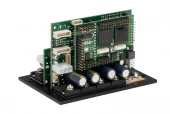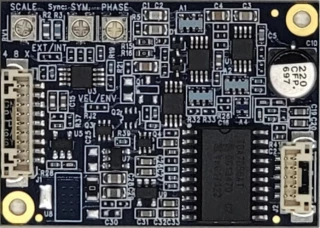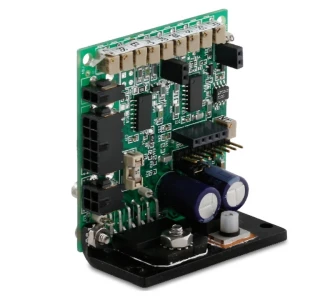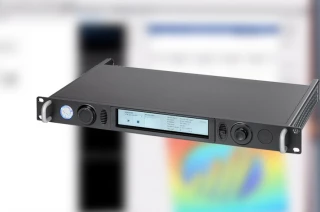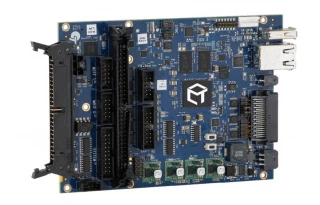Description
The DC3000 Plus Digital Servo Driver from Cambridge Technology, a Novanta brand, is engineered for ultra-fast, high-precision scanning in photonics and laser-based systems. Designed for demanding applications such as micromachining, additive manufacturing, and marking, this dual-axis servo driver integrates simulation-based pre-filtering and state-space control to ensure optimal motion performance and reliability.
Equipped with patented self-calibration technology and an onboard processor, the DC3000 Plus calibrates system components automatically at startup, reducing manufacturing costs and improving uptime. Its compact design with flexible mounting options, low-profile connectors, and broad power compatibility (±15 to ±28VDC) ensures seamless integration into tight spaces and complex optical assemblies.
Featuring a high-speed XY2-100 serial digital input and capable of delivering up to 20 A peak current per axis, this driver enables precise beam steering and superior response rates. Designed for minimal dither (4 µrad RMS) and ultra-low noise operation, the DC3000 Plus is fully optimized for use with Cambridge Technology’s galvanometers and scanning solutions.
Digital Servo Driver DC3000 Plus
Specifications
| Function: | Drives |
|---|---|
| Input Voltage: | 28 V |
| Max Input Current: | 20 A |
| Accessories: | Extra cables, Other (see Data Sheet) |
| Number Of Axes: | Dual |
| Command Input: | XY2-100 High-Speed Serial Digital |
| Analog Output Impedance: | < 1Ω (The un-terminated output of OPA2227) |
| Power Supply Requirements: | +/-15 to +/-28VDC configurations available |
| Quiescent Power: | 11.5 W |
| Operating Temperature Range: | 0-50 °C |
| Dimensions: | 10.50 x 7.50 x 6.44 cm |
| Dither (RMS): | 4 µrad |
Features
- Dual-Axis Configuration: Supports synchronized scanning control for high-speed applications
- Self-Calibrating Technology: Auto-tunes components at startup for consistent performance
- Simulation-Based Pre-Filtering: Enhances motion accuracy and speed
- Flexible Power Supply Compatibility: Operates with ±15V to ±28V DC input
- Low Noise Operation: Delivers precise control with only 4 µrad RMS dither
- Compact & Easy Integration: Small footprint with onboard processing and low-profile connectors
- Fully Optimized for CT Galvos: Seamless performance when paired with Cambridge Technology scanners
Applications
- Additive Manufacturing: Enables accurate laser positioning for 3D printing
- Micromachining: Powers fine, precise material processing in industrial systems
- Laser Marking & Engraving: Delivers fast, controlled beam movements for crisp results
- Diagnostic & Biomedical Imaging: Provides precise motion control in scanning-based imaging platforms
- Optical Test Systems: Supports fast and reliable calibration in photonics test benches
- Material Converting & Processing: Ideal for high-speed marking and web-based production lines
Frequently Asked Questions
What are the key features of the DC Series Digital Servo Drivers?
How do the servo drivers optimize motion control?
How do the servo drivers reduce system manufacturing costs?
What advantages do the servo drivers offer for field service?
Are the servo drivers easy to integrate into existing systems?
Similar Products
Your inquiry has been received.
Create an account by adding a password
Why create an account?
- Auto-complete inquiry forms
- View and manage all your past messages
- Save products to your favorites
- Close your account anytime — no hassle
